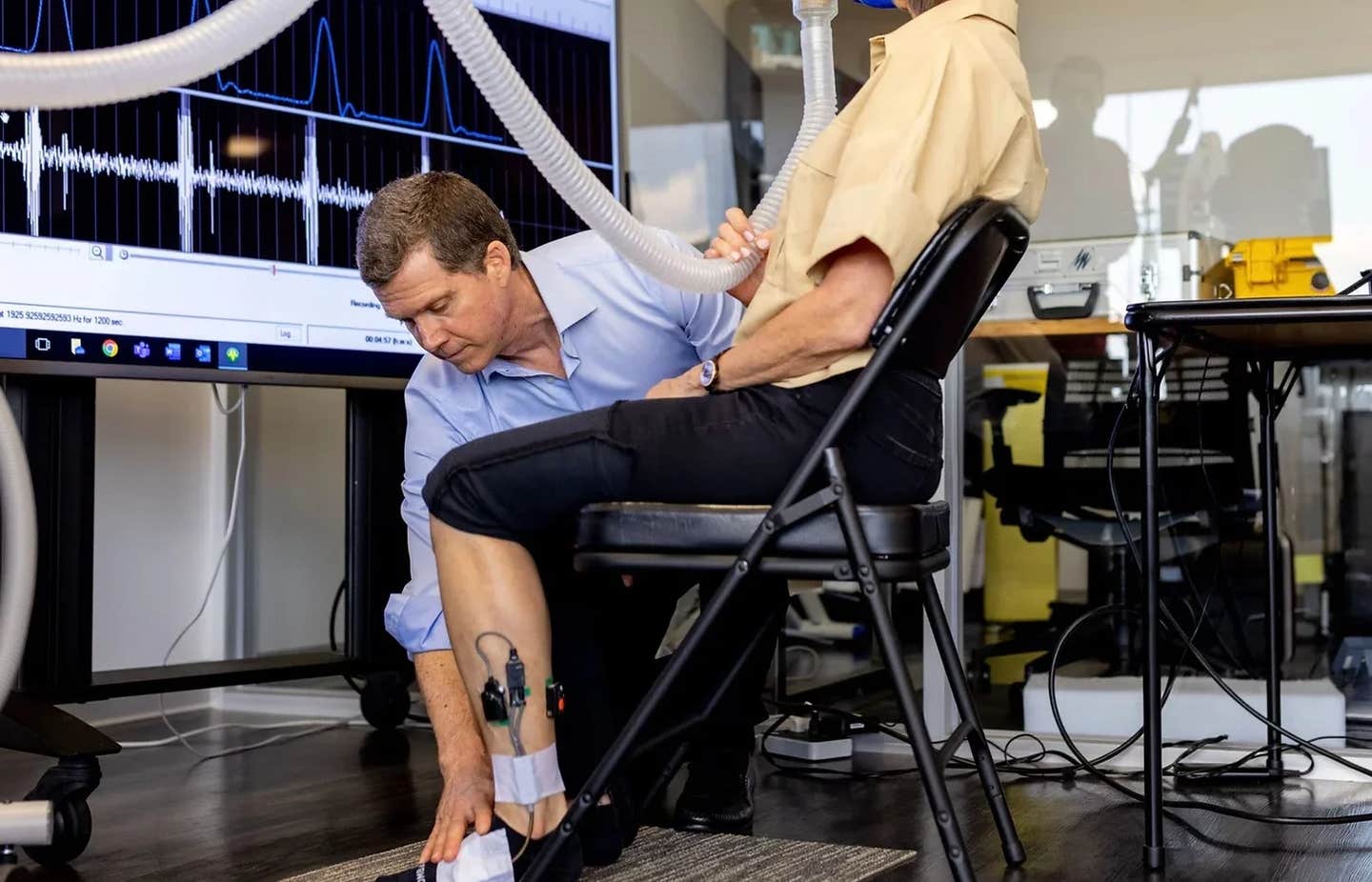Playing an instrument linked to improved brain health in older adults
Study delves into the connection between music and cognitive function, sheds light on the potential benefits of musicality for individuals

Engaging in music throughout your life is associated with better brain health in older age, according to a new study. (CREDIT: Creative Commons)
Engaging in music throughout your life is associated with better brain health in older age, according to a new study conducted by experts at the University of Exeter. This groundbreaking research, which delves into the connection between music and cognitive function, sheds light on the potential benefits of musicality for individuals as they age.
The study, conducted as part of the ongoing PROTECT project, an online study open to participants aged 40 and over, examined data from over a thousand adults, all aged 40 and above.
PROTECT, which has been running for an impressive decade, has attracted over 25,000 participants keen on contributing to our understanding of various factors influencing brain health in later life.
The research team undertook a comprehensive analysis, considering participants' musical experiences and lifetime exposure to music. They coupled this with cognitive testing to explore the correlation between musicality and brain health. Their findings present a compelling case for the cognitive benefits associated with musical engagement, particularly the playing of musical instruments and participation in choirs.
Related Stories
The study's lead researcher, Anne Corbett, who holds the position of Professor of Dementia Research at the University of Exeter, shared her insights: "A number of studies have looked at the effect of music on brain health.
Our PROTECT study has given us a unique opportunity to explore the relationship between cognitive performance and music in a large cohort of older adults. Overall, we think that being musical could be a way of harnessing the brain's agility and resilience, known as cognitive reserve."
The study's results indicate a notable connection between playing a musical instrument, especially the piano, and enhanced memory retention and problem-solving abilities, known as executive function. Additionally, the data suggests that continuing to play a musical instrument into one's later years can provide even greater cognitive benefits. Singing, too, was shown to be linked to improved brain health, although researchers speculate that this might also be due to the social aspects of being part of a choir or musical group.
Types of musical instrument played by the SCALE cohort. Bowed instruments include violin, viola, violoncello and double bass. (CREDIT: Wiley)
Stuart Douglas, a 78-year-old accordion player from Cornwall, is a living testament to the study's findings. He has played the accordion throughout his life and continues to do so actively, both as a member of the Cober Valley Accordion Band and the Cornish Division of the Royal Scottish Country Dance Society.
Stuart shared his personal experience: "I learnt to play the accordion as a boy living in a mining village in Fife and carried on throughout my career in the police force and beyond. These days I still play regularly, and playing in the band also keeps my calendar full, as we often perform in public. We regularly play at memory cafes so have seen the effect that our music has on people with memory loss, and as older musicians ourselves, we have no doubt that continuing with music into older age has played an important role in keeping our brains healthy."
SCALE participant responses for the questions included in the analysis of ‘Factor 1: Playing a Musical Instrument’. (CREDIT: Wiley)
The implications of this research extend beyond the individual benefits of musical engagement. The study, titled 'The relationship between playing musical instruments and cognitive trajectories: Analysis from a UK aging cohort,' is now published in the International Journal of Geriatric Psychiatry. It was made possible through the support of the National Institute for Health and Care Research (NIHR) Applied Research Collaboration South West Peninsula (PenARC) and NIHR Exeter Biomedical Research Centre.
As we gain deeper insights into the relationship between music and cognitive health, it becomes apparent that promoting musical education could be a valuable component of public health initiatives aimed at preserving brain health in aging populations.
Encouraging older adults to rekindle their musical interests in later life might be a proactive step towards reducing their risk of cognitive decline. The potential benefits of music group activities, particularly for individuals with dementia, have already been well-documented, and this approach could be further incorporated into comprehensive healthy aging strategies.
The study's findings open doors to exciting possibilities for promoting cognitive well-being in older adults, enhancing our understanding of the intricate interplay between music and the human brain.
The PROTECT study is running entirely online and is open to new participants aged 40 an over. To find out more, visit: http://www.protectstudy.org.uk.
Note: Materials provided above by The Brighter Side of News. Content may be edited for style and length.
Like these kind of feel good stories? Get the Brighter Side of News' newsletter.
JJ Shavit
Joshua Shavit
Science & Technology Writer | AI and Robotics Reporter
Joshua Shavit is a Los Angeles-based science and technology writer with a passion for exploring the breakthroughs shaping the future. As a contributor to The Brighter Side of News, he focuses on positive and transformative advancements in AI, technology, physics, engineering, robotics and space science. Joshua is currently working towards a Bachelor of Science in Business Administration at the University of California, Berkeley. He combines his academic background with a talent for storytelling, making complex scientific discoveries engaging and accessible. His work highlights the innovators behind the ideas, bringing readers closer to the people driving progress.



